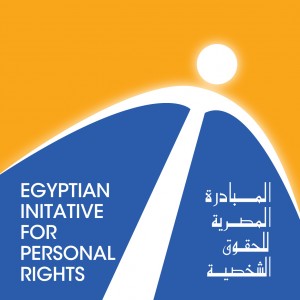JERUSALEM: "Cain rose up against Abel his brother and killed him" (Genesis 4:8)
This was the first of many murders in the Bible. The sages of the Talmud (record of rabbinic discussions 200-500 CE) tried to grapple with the motives behind Cain’s taking of another’s life, an act which, according to the Bible, first introduced the idea of murder into the story of the human race.
Several interpretations are given in the Midrash (ancient rabbinic homiletical texts) as to why Cain killed his brother Abel beyond the explicit one given in the Bible. One particular midrash comments on why the brothers quarrelled: One brother said, ‘The Temple must be built on my land,’ while the other claimed, ‘It must be built on mine.’" (Genesis Rabbah 22). Of course the Temple had not been built yet at the time of Cain and Abel, but the Talmudic Rabbis creating midrash after its destruction are commenting on the implications of demanding exclusive ownership of the Divine.
Today in the Middle East it is commonplace to think that religion in general, and most of those who speak in its name in particular, do not favour negotiations – nor are they willing to make the significant compromises needed to enable both sides to coexist peacefully. And for the most part this is true. Nevertheless it is worthwhile, at the very least, to try and dispel the idea that the very nature of religion is to blame. More than that, we must make great efforts to incorporate religion and involve religious people in the discourse on how to bring the conflict to an end.
There are several very good reasons for doing this: The first is simply pragmatic – large constituencies amongst the peoples engaged in conflict in this region see themselves t as somewhat religious. Thus far conciliation attempts by secular leaders, which did not include religious communities, have had only partial success, if at all. It is doubtful whether we can reach a sustainable solution without the participation of religious communities, or at least those which are open to compromise.
Despite religious extremism one can find religious communities on all sides that are working to develop a religious ethos of peace. Recognising these communities and including their ethos in the conflict resolution discourse could be the catalyst for a new kind of conversation. It is also feasible that by creating an ideological and perhaps even emotional infrastructure, that highlights religious reconciliation and at the same time fits with the religious communities’ worldview, we will broaden the circle of those who will support the peace process.
An example of an ethos that is critical of the kind of religious possessiveness that leads to intransience can be found in the abovementioned midrash. The initial religious desire to want the house of God to be located on our land, close to us and under our jurisdiction is easy to understand. Yet this midrashic interpretation suggests that this basic desire is what led to the first murder. Clearly, the text is extremely relevant today, as Jerusalem – the city where the Temple once stood – is one of the biggest obstacles to a peace process.
Indeed the midrash represents a radical interpretation and a minority religious position within today’s discourse. But it does exist within the religious texts and acknowledging that it is present could open the door to those religious individuals and communities who are critical of the current religious possessiveness, enabling them to join those who support reconciliation.
However there is a deeper reason for including religion. A closer look reveals that something inherent but concealed within the religious world could be the key to reconciliation if it is brought into the discourse: The principle of devotion is at the foundation of religion itself. The basic requirement for any person who comes under the canopy of religion is devotion to something that is greater than the self. The recognition that one surrenders to something greater than his or her own self-interest naturally requires one’s willingness to compromise. This readiness can be harnessed to promote reconciliation.
Reading the midrash above is enlightening in this context as well since it demonstrates a religious and spiritual demand. "The Temple will be built within my jurisdiction," insists each of the brothers, and this results in murder. The criticism expressed here is of a religious nature. It is a call to surrender to something that is greater than the religious desires of each side. The claim to own God is what led to the first murder, and the midrash suggests that this claim contradicts the most basic religious truth – that God cannot be owned by anyone.
Lea Klibanoff is a religious activist and film-maker. This article was written for the Common Ground News Service (CGNews).


